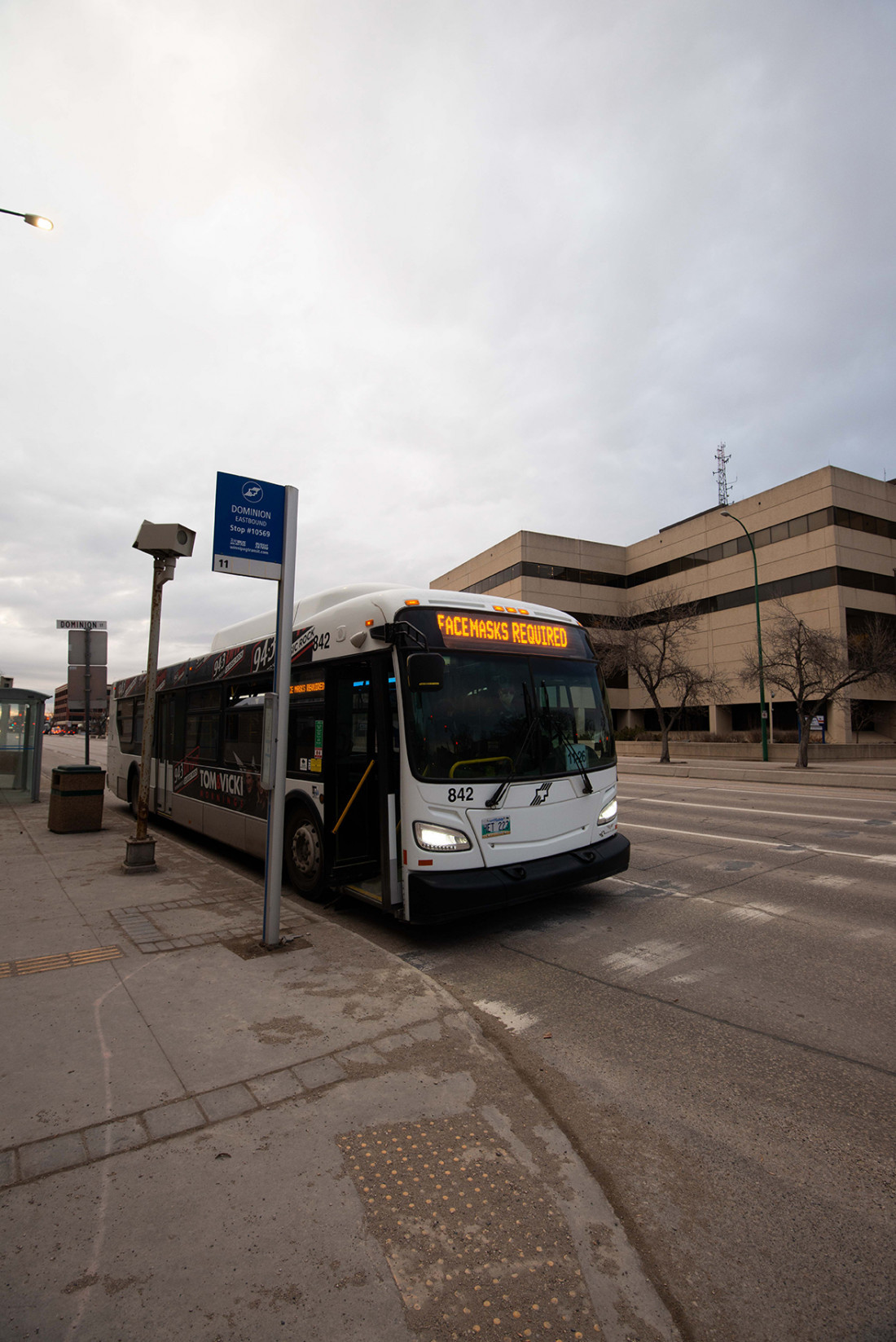‘Eye-popping’ conditions and ‘reactive’ policies
A transit operator’s pandemic work environment

The COVID-19 pandemic has made riding the bus a lot more complicated for passengers and operators alike. Photo by Keeley Braunstein-Black
Over the past year, the COVID-19 pandemic has dramatically altered how many Winnipegers interact with others, especially in public spaces. The prevailing public-health advice has been to avoid being in enclosed spaces with people outside of a household “bubble.”
In buses, however, which are an essential service for many, riders and bus drivers are forced into close proximity to one another, making it one of the few public spaces where this occurs.
A Winnipeg Transit bus operator, who has spoken to The Uniter under the condition of anonymity, describes their work environment over the last year as “eye-popping.”
“Winnipeg (Transit) was very unprepared for COVID-19,” they say. “We’re all very frustrated.”
According to the bus operator, the Amalgamated Transit Union, which represents them and their coworkers, raised the issue of masks for drivers and on buses in January 2020.
While Winnipeg Transit eventually provided drivers with masks in late April of 2020, they say the mask mandate, which came into effect in late August for Winnipeg Transit buses and city buildings, “took way too long.”
Even with this regulation, the transit operator says they witness constant violations, such as patrons not wearings masks, at essentially every moment during every shift.
“In reality, we don’t have the power (to enforce it),” they say. “If we call the control centre, they’ll tell us: ‘just advise them, and if they don’t comply, just let it be,’” they say, adding that it is common for bus drivers to encounter “combative” and “COVID-denying” individuals.
In an email to The Uniter, Megan Benedictson, communications officer for Winnipeg Transit, says that “mask compliance currently sits above 99 percent.”
“Compliance is monitored through visual observations carried out by on-street supervisors stationed at strategic locations, and other personnel,” she says.
The Winnipeg Transit website states that “Transit riders could face a $100 fine for non-compliance.” However, it is unclear who – if anyone – is enforcing this policy.
Dylon Martin, who takes the bus a few times every month, says in an email to The Uniter that COVID-19 safety concerns have caused him to minimize his transit use.
“Buses don’t seem significantly less crowded, at least at peak times, than before,” he says.
“I think it would be very important to improve transit frequency on peak hours,” Martin says, adding that “buses should be well below capacity to allow for physical distancing.”
He adds, however, that the mask mandate on buses has helped him feel more comfortable while riding.
Another issue of concern for transit workers has been the reporting of COVID-19 cases. The operator says they are not being directly informed of cases on their buses.
Benedictson points out that Winnipeg Transit shares information “about potential public exposures at civic facilities and on board our vehicles on the City of Winnipeg website.”
“Winnipeg Transit is committed to protecting the health and safety of our operators, other employees and passengers,” she says.
Looking ahead, however, the bus driver hopes a different approach is taken.
“Going forward, we are hoping that the City of Winnipeg and Winnipeg Transit are more proactive instead of reactive,” they say.
Published in Volume 75, Number 24 of The Uniter (May 1, 2021)






